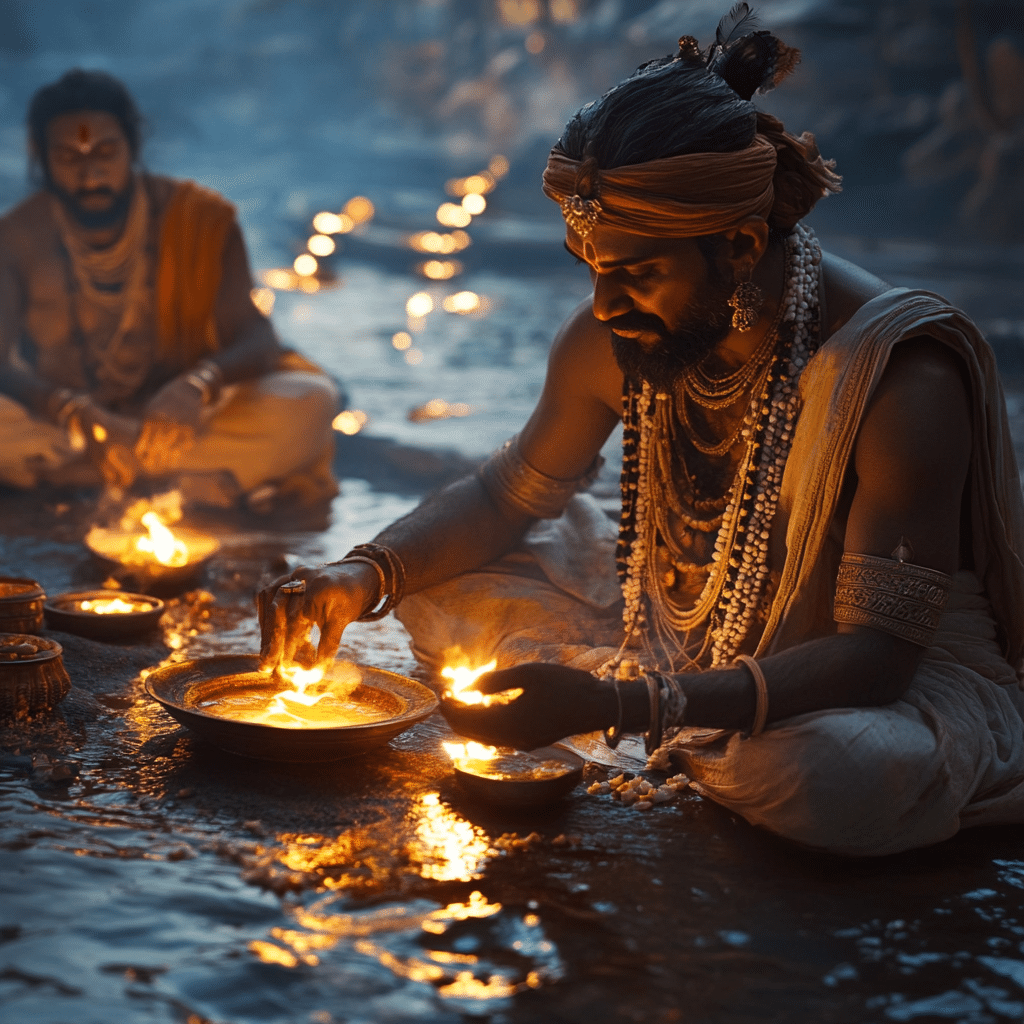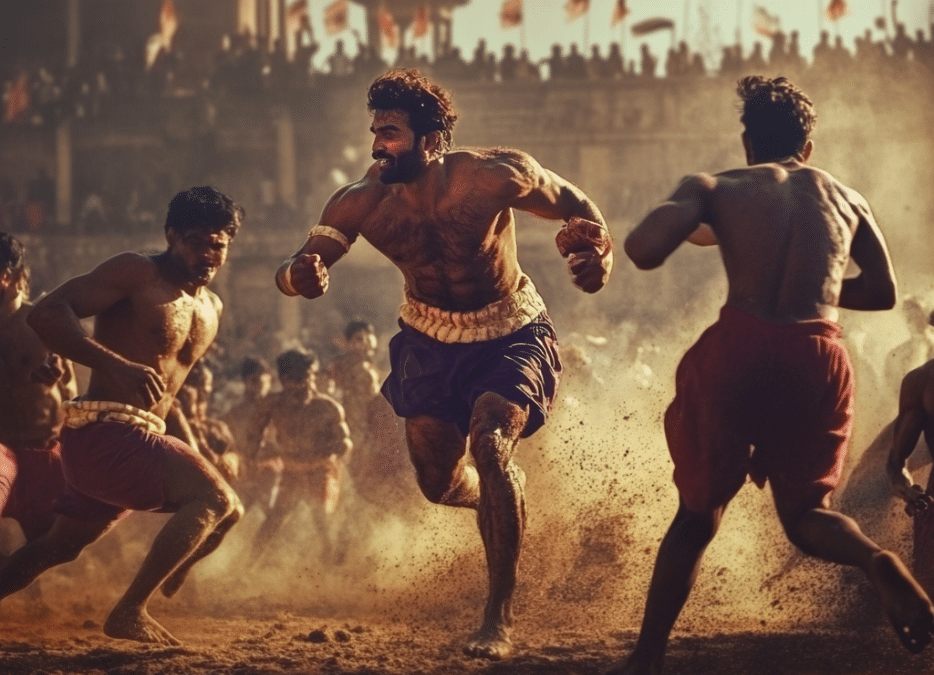Pitru Paksha and Similar Festivals Around the World: Celebrations Honoring Ancestors
Pitru Paksha is a Hindu festival celebrated in India to honor ancestors and their souls. During this two-week period, which culminates on a day known as “Mahalaya Amavasya,” people pay tribute to their departed ancestors through rituals, prayers, and offerings. Similar festivals dedicated to remembering the deceased and honoring family roots can be found all around the world. This article introduces Pitru Paksha and explores other celebrations with similar purposes in various cultures.
If you plan to bet on Sport or in Casino, Betbolt (review)is the right choice. This betting platform offers a wide range of betting options and excellent welcome bonuses, allowing you to start your bets with a significant advantage. New users can receive attractive welcome bonuses and free spins, increasing their chances of winning.
Pitru Paksha (India)
Pitru Paksha is a Hindu festival considered a time for honoring ancestors and praying for their souls. In Hindu belief, it is essential that the souls of the deceased find peace and satisfaction in the afterlife, which can be achieved through rituals known as shraddha. This festival usually falls in September or October, depending on the Hindu lunar calendar.
During Pitru Paksha, people offer food such as rice, grains, sesame, and other traditional dishes as symbolic offerings to their ancestors. These offerings are often made by sacred rivers, where purification rituals are performed. It is believed that these offerings help ancestors in the afterlife and ensure them peace and abundance. Pitru Paksha is a time of family unity, where people come together to remember and honor their forefathers.
Día de los Muertos (Mexico)
One of the most famous festivals dedicated to the deceased is Mexico’s Día de los Muertos, or Day of the Dead. This colorful festival, celebrated on November 1 and 2, honors departed family members. During these days, people create altars called “ofrendas,” placing photos of the deceased, flowers, candles, favorite foods, and other items that symbolize memories of their loved ones.
A striking symbol of the Day of the Dead is the sugar skull, along with vibrant decorations that reflect a joyful celebration of both life and death. This festival, listed as UNESCO Intangible Cultural Heritage, is unique in its approach to death, viewing it as a natural part of life to be remembered with love and gratitude.
Obon (Japan)
Obon is a traditional Japanese festival celebrated in summer, usually in August or July. This Buddhist festival is a time when people honor their ancestors, believing that the souls of the departed return to the world of the living to visit their families. Obon is a period when families come together, decorate home altars, and light lanterns to symbolically guide the spirits of ancestors back home.
One of the most beautiful Obon traditions is “toro nagashi,” where floating lanterns are released on water to guide souls back to the afterlife. Obon is a peaceful festival full of respect and remembrance for the deceased, and it also includes traditional dances called Bon Odori, which are performed to bring joy to the spirits.
Qingming (China)
In China, a similar festival known as Qingming, or Tomb-Sweeping Day, takes place at the beginning of April. During this festival, people visit their ancestors’ graves, clean them, and bring offerings of food, flowers, and paper money, which they burn as symbolic gifts to send to the deceased in the afterlife.
Qingming is not only a time to honor ancestors but also an opportunity to spend time in nature, as the festival marks the arrival of spring. This celebration of life and nature is deeply rooted in ancient Chinese traditions, symbolizing the connection between the past and the present.
Pchum Ben (Cambodia)
Pchum Ben is a Buddhist festival in Cambodia that lasts 15 days and usually ends in late September or early October. This festival is dedicated to remembering the deceased, and it is believed that during this time, the souls of the departed return to the world of the living. Families bring rice and other food to temples, where monks offer them to the spirits of the deceased.
Pchum Ben is an essential festival for Cambodians, reflecting their deep respect for ancestors and providing a time for meditation, remembrance, and spiritual cleansing. During this period, people visit temples, pray for their loved ones’ souls, and believe that offerings will help the deceased find peace.
All Saints’ Day and All Souls’ Day (Europe)
In many European countries, All Saints’ Day (November 1) and All Souls’ Day (November 2) are celebrated as Christian holidays dedicated to remembering all saints and all faithful departed. In Catholic countries like Poland, Italy, the Czech Republic, and Austria, people visit cemeteries, decorate graves with flowers, and light candles as an expression of respect and remembrance for their deceased loved ones.
The atmosphere during All Souls’ Day is calm and reflective. This holiday serves as a reminder of respect and reverence for those who have passed away, fostering family memories and connections between generations.
Conclusion
Pitru Paksha and other festivals dedicated to ancestors and the deceased are universal aspects of many cultures worldwide. Although the customs and traditions of these celebrations vary, they all share a common purpose: expressing deep respect for the deceased, remembering family roots, and bridging the gap between the living and their forefathers. These festivals remind us that, while death is a natural part of life, memories of our loved ones connect us to the past and help us understand our place in the world.
Whether it is quietly lighting candles on graves during All Souls’ Day, the vibrant celebrations of life and death during Día de los Muertos, or guiding the spirits of ancestors with lanterns during Obon, these traditions inspire us to honor our roots and express gratitude to those who came before us.





